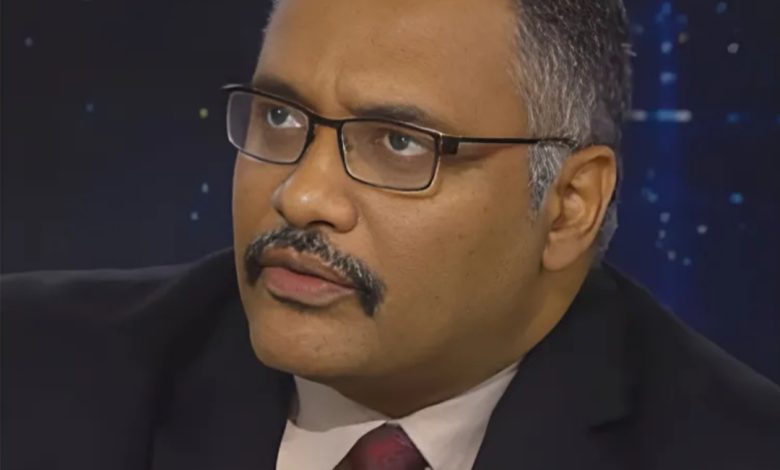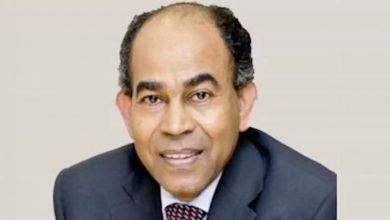Security Diplomacy Corrects the European Position and Rallies Arab Consensus
"Mufaddal's tours included France, Italy, five Arab countries, and Saudi responsiveness to changes!"

Maki Al-Maghrabi
Despite the atrocities of the war in Sudan, there are political and diplomatic efforts being revealed for the first time, aimed at mobilizing international public opinion to stop the war in Sudan and restore peace and security in the region. All this is being done with the right formula to end the problem, not in the way of “treating me with what was my illness,” which is being adopted by parties becoming more isolated every day.
This time, the efforts are not led by politicians or UN officials, but by a broad movement in the international intelligence community. Specifically, it is led by Lieutenant General Ahmed Ibrahim Mufaddal, Director of General Intelligence, who visited France, Italy, and five Arab countries.
While the international human conscience is in pain and people anxiously follow the Rapid Support Forces’ attempts to enter the city of El Fasher and its brutal bombing of the city’s citizens, U.S. Secretary of State Antony Blinken declares his rejection of the militia’s entry into El Fasher. However, the fear in Europe is not only for Sudan but also for Europe itself. Specifically, European intelligence agencies believe that the war in Sudan is a major security catastrophe, with its effects tightly linked to the issue of irregular migration, focusing on the security aspect rather than the humanitarian or economic one. Politicians view migration through the lens of increasing numbers of migrants heading to Europe and their impact on job opportunities and the values of European societies. However, intelligence agencies have closely monitored that this migration comes from areas witnessing the spread of terrorism, violence, armed groups, and militias. Therefore, it is certain that among every group of migrants, there are elements from terrorist groups and militias that have already reached Europe. Yes, it is true that migrants are victims of conflicts, but with their increasing numbers and the worsening conflicts in their areas, the percentage of criminal and terrorist elements and members of dangerous militias accused of genocide among migrants to Europe increases. Such an imminent danger cannot be silenced due to opportunistic relations some officials have with a country supporting the militia, as it is a matter of national security for European countries, not just a conflict in an African country.
According to European reports, Sudan used to be an attractive region for economic migrants due to its large agricultural projects, and it absorbed numbers of African migrants, particularly during the oil boom and agricultural expansion. Sudan was a country capable of securing its borders and combating human trafficking gangs that rely heavily on irregular migration. With the war, all this began to fade, and therefore, Sudan must regain control over all its territories.
High-level intelligence meetings in France included French intelligence and the Ministry of Foreign Affairs, reviewing all the files in the presence of Sudan’s ambassador to Paris, Khalid Farah. These meetings highlighted the need to agree on a solution to stop the war and establish peace to secure the region. The focus of the meetings in Italy, on the other hand, was the most dangerous file, which is the explosion of terrorism and its potential effects on Europe. The meetings in France represented a major shift, not just short listening sessions. There is a desire to enter into a joint action program. According to the Sudanese source, they were surprised by France’s close follow-up and deep concern over Sudanese affairs, as well as its desire to take new positions in favor of security and peace in the region, especially cooperation between French and Sudanese intelligence.
Regarding U.S.-Sudanese relations, Sudan was removed from the list of state sponsors of terrorism after long negotiations with Washington, which began during Bashir’s regime and continued after it, culminating in the removal steps in 2020 when President Trump was running for re-election. The strange thing is that U.S.-Sudanese cooperation in combating terrorism preceded the delisting decision by almost twenty years, but the delay was due to political, not security, issues.
People are accustomed to political negotiations, but this time there is a realistic and pragmatic approach to achieving peace in Sudan. The entry point this time is a security solution and a rapprochement between Western and Arab intelligence agencies on one side and Sudan on the other, to reach a solution that guarantees Sudan’s unity and stability.
Instead of the region sliding into total chaos, the better option is to grant a broader mandate to the international intelligence and security community to cooperate with Sudan to stop the war and contain illegal militias. The region cannot afford more political bargains with countries that have ambitions to control Sudan. Action is needed, especially since there is a war in Ethiopia and conflicts in the Central African Republic and throughout the region. If a solution is not reached, the entire region will descend into a deep abyss of conflicts.
General Mufaddal’s regional tour included Saudi Arabia and Egypt, countries directly related to Sudanese affairs, where there was a significant reception and high-level understanding in Saudi Arabia, indicating signs of change. As for Egypt, with its firm stance on peace in Sudan, everything was fine even before the visit. There is significant Sudanese-Egyptian rapprochement, and much less is publicly disclosed than what actually exists. The tour also included Algeria (representing Africa on the Security Council), Iraq, and Libya. Algeria is now a major player in the region, with a strong economy and advanced military capabilities.
The message delivered by General Mufaddal in all his visits was realistic and logical, aligning with the Western community’s views. It was consistent with the statements of U.S. envoy Tom Perillo, who said very frankly that there is no political or military future for the Rapid Support Forces militia, but rather the future lies with the Sudanese army. However, it seems that what America says verbally, Europe is applying on the ground.
Other countries were included in the tour or were contacted through intermediaries, which the sources prefer to withhold, but events will reveal that the scope of the shift is greater than the above list.



